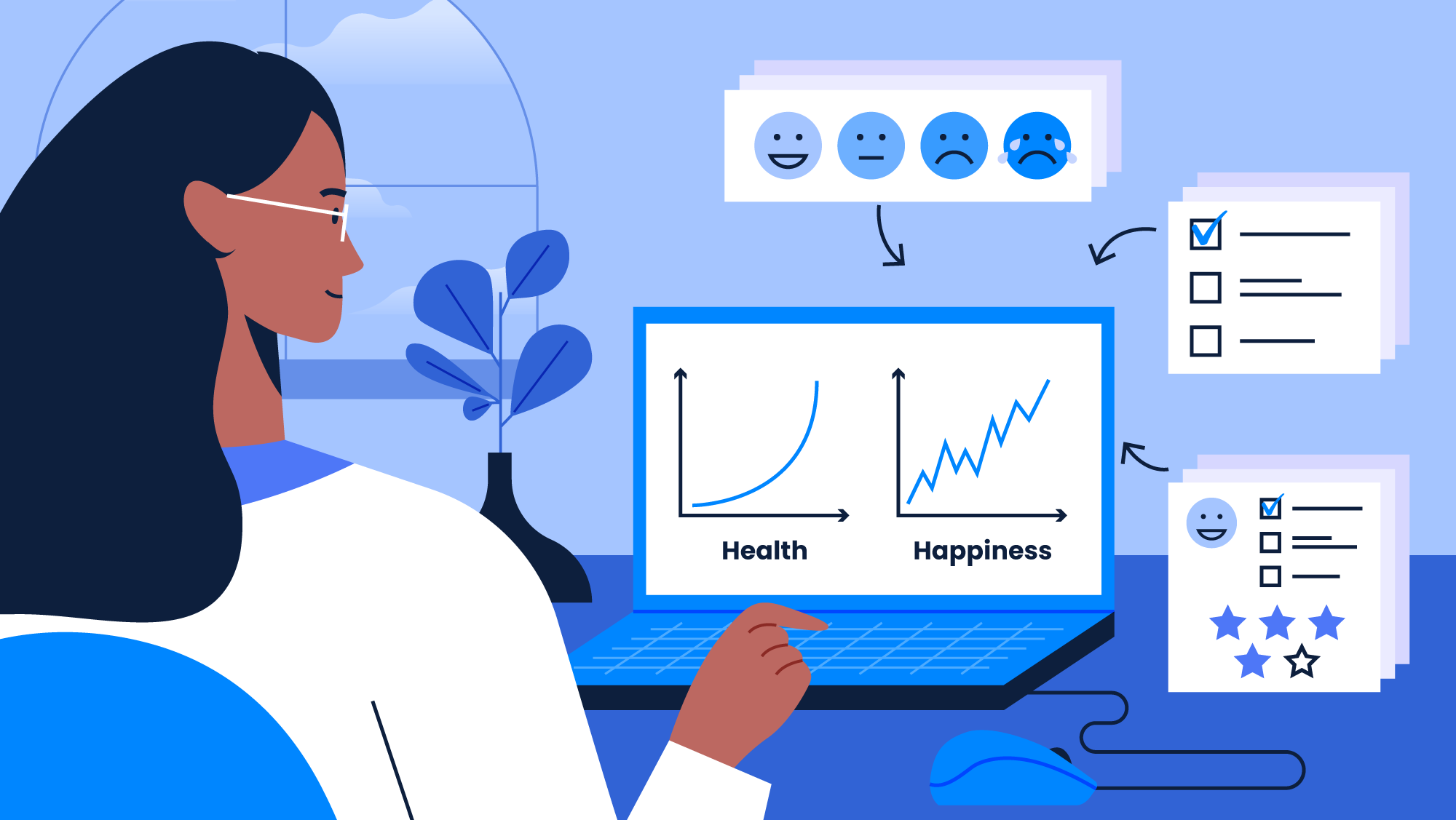Blog Supercharging Your Practice with Surveys

It goes without saying: patient information is critical to clinics.
Some information is received about patients, some information is reported by patients, and some information is never gathered from patients. For example, a nurse might get a patient’s medical history over a phone call; a patient may complain of pain over WhatsApp; and the clinic might never find out if the patient was satisfied with a consultation.
In each case, patient information and the way of collecting it, presents a chance for clinics to provide care more effectively and efficiently. This chance is lost when information is gathered in an unstructured way over a call or staff time is dedicated to asking routine questions.
Surveys are a solution.
Surveys allow clinics to control how and when patient information is gathered. Compared with a WhatsApp or phone update, surveys let clinics collect information in a structured manner and let patients respond at their convenience. For instance, pain scale surveys can be used to comprehend and compile information systematically and methodically. With data gathered in a structured way, clinics would be able to further analyse the information for actionable patterns. Here are three ways in which surveys can supercharge clinical practice.
1) Understanding patients through continuous engagement
Surveys are useful in deeply understanding patients’ practices and preferences. Healthcare providers only receive a faint picture of a patient’s health habits during a consultation. Providers rely on a patient to summarise their lifestyle, habits or practices within the time constraint of a consult. To gain better insight over say, a patient’s exercise discipline, diet practice or quality of sleep, providers require a way of gathering information over a period of time. Online surveys can be deployed for this purpose. Surveys can be routinely triggered with the same set of questions or modified based on previous responses.
Beyond capturing a clearer picture of a patient’s health profile, clinics are able to drive greater patient engagement by periodically sending surveys. With questionnaires that regularly ask patients about their health, they will be assured that the clinic cares for them, even beyond consultation hours.
Patients also seem willing to be engaged this way. A study conducted by CDW Healthcare revealed that over 68% of 200 chronic patients were willing to share personal, real-time health information with their providers for better care management. Online surveys provide patients with a medium to share such information. Chronically ill patients can divulge data about their self-monitored vitals from the comfort of their homes.
More than that, by requiring patients to routinely record their habits through surveys, patients are nudged to think more frequently about their health and manage it with more responsibility.
2) Monitoring effectiveness of treatment and medication
Beyond building stronger relationships with patients, surveys enable a clinic to gather structured information from their patients that they can further analyse. Surveys help clinics rigorously analyse the effect of their treatment plans or patients’ adherence to medication, much like running an experiment.
Clinics decide the standard for their treatment plans and dispense surveys to monitor if it is being met. For instance, Treatment Plan A targets that a patient’s pain diminishes by three levels within three months of being on the Plan. Clinics can routinely trigger the surveys over the course of the three months to monitor how the patient’s pain scores change over time. Similarly, patients’ adherence to medication can be monitored with a simple yes/no survey. Surveys let you control in what way a patient responds, such as a closed-list of preset options, as numbers, images or descriptions (as on various pain scale surveys). Because clinics can receive structured information, analysis of such responses is made easier, without requiring manpower for data-cleaning.
Survey software such as Typeform empower clinics to monitor aggregate responses to surveys. Survey results can be further transmitted into business intelligence platforms for custom analysis. All in all, surveys are a powerful tool that let clinics monitor the effects of their service.
3) Collecting feedback on care and satisfaction
With surveys, clinics can compare providers’ perception of the quality of care delivered against that of a patient’s. If clinic management has questions about the friendliness of front desk or reasonableness of waiting times, they can find out directly from patients. Compared to in-person feedback, online satisfaction surveys let patients respond in privacy at their convenience, making them more likely to provide honest and actionable suggestions.
Specific survey software use industry-leading metrics such as Net Promoter Score® (NPS®), Customer Satisfaction (CSAT) and Customer Effort Score (CES) use single, simple and straightforward questions to monitor patients’ loyalty, satisfaction or experience with a clinic.
Clinic groups will find such surveys useful in ensuring that patient experience remains consistent across their various locations. With an eye on patient satisfaction metrics, clinics can monitor if patient care is delivered up to the same standard across the board. Consistency in standards can help in strengthening the brand of the clinic chain.
Plato’s App Marketplace has the right survey software to power your practice. Head to Plato’s App Marketplace or book a demo to find out more.
– Swathi Bhat
May 18, 2020
